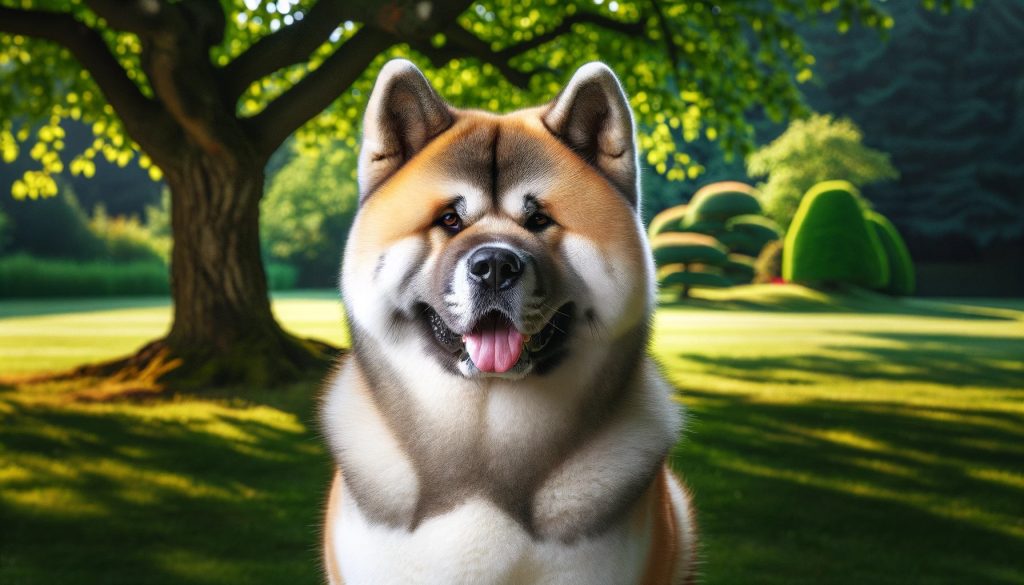
Understanding the Akita Dog Breed: Characteristics, Temperament, and Care
Introduction
The Akita is a breed with a noble and formidable presence, known for its loyalty and complex personality. Originating from Japan, these dogs have a rich history and are revered for their courage and fidelity. In this comprehensive guide, we will explore various aspects of the Akita breed, answering some common questions that prospective and current owners often have.
Why is my Akita so aggressive?
Aggression in Akitas can stem from various factors, including genetics, upbringing, and socialization. Traditionally bred as hunting and guard dogs, Akitas have a strong territorial instinct. They can be aggressive towards strangers and other animals if not properly trained and socialized from a young age. Understanding their behavior and investing in regular training and socialization can significantly mitigate aggressive tendencies. Read more about Akita aggression.
What are Akitas afraid of?
Like any breed, Akitas have their fears. Despite their brave exterior, Akitas might be fearful of unfamiliar environments, loud noises, or sudden changes in their routine. Some may exhibit anxiety during vet visits or when separated from their owners. Identifying and gently exposing them to these fears, within a controlled environment, can help them become more confident and less fearful. Discover common fears of Akitas.
What are the pros and cons of owning an Akita?
Owning an Akita comes with a unique set of advantages and challenges. On the pro side, Akitas are incredibly loyal, protective, and make excellent watchdogs. They also have a dignified and calm demeanor, making them great companions. However, their strong-willed nature can be a con, as it requires an owner who is experienced in dog training. They also need plenty of exercise and mental stimulation to prevent boredom and destructive behavior. Explore more pros and cons of owning an Akita.
Is Akita stronger than Pitbull?
Comparing the strength of an Akita to that of a Pitbull isn’t straightforward, as it depends on various factors like size, training, and temperament. Akitas are larger and have a more robust build compared to Pitbulls, which might give them a physical advantage. However, Pitbulls are known for their incredible jaw strength and agility. The concept of ‘strength’ can vary depending on whether you’re considering physical power, endurance, or tenacity. Compare Akita and Pitbull strengths.
Do Akita dogs like to cuddle?
Akitas are known for their independence and may not be as openly affectionate as other breeds. However, this doesn’t mean they don’t enjoy bonding with their owners. Many Akitas show their affection through loyalty and protective behavior rather than cuddling. Each dog has its unique personality; some might enjoy close physical contact, while others prefer to show their love differently. Learn about Akitas and cuddling.
Why are Akitas special?
Akitas hold a special place in the canine world due to their history, temperament, and physical attributes. They are a symbol of good health, happiness, and long life in Japanese culture. Their loyalty is legendary, epitomized by the famous story of Hachikō, an Akita who waited for his deceased owner for years at a train station. Their thick double coats, bear-like head, and dignified posture add to their unique appeal. Read more about what makes Akitas special.
Grooming and Care for Akitas
Akitas have a thick double coat that requires regular grooming. They shed heavily twice a year, and during these periods, daily brushing becomes essential to remove loose fur and maintain coat health. Bathing should be done only when necessary, as their coat has natural oils that protect their skin. Regular nail trimming, ear cleaning, and dental care are also crucial for their overall well-being.
Health Considerations in Akitas
Akitas are generally healthy, but like all breeds, they’re prone to certain health conditions. Common issues include hip dysplasia, hypothyroidism, and progressive retinal atrophy. Responsible breeding practices can help minimize the risk of genetic disorders. Regular veterinary check-ups, a balanced diet, and adequate exercise are vital to keep them healthy.
Training and Socialization
Due to their independent nature, Akitas require consistent and patient training from an early age. Positive reinforcement techniques work best. Socialization is also critical to prevent them from becoming overly wary or aggressive towards strangers and other animals. A well-socialized Akita is more likely to be well-adjusted and confident.
The Akita’s Place in Your Home
Akitas thrive in a home environment where they are part of the family. They are not suited for outdoor living due to their need for human companionship. A secure yard for them to play in is ideal, but they should live indoors with their family. They do best in homes without other pets, especially of the same sex, due to their dominant nature.
Conclusion
The Akita is a majestic and loyal companion, suited for those who appreciate a dog with a strong personality and presence. While they may require more effort in terms of training and socialization, the reward is a devoted and protective companion. Understanding and respecting their needs and characteristics can lead to a harmonious and fulfilling relationship with this remarkable breed.
